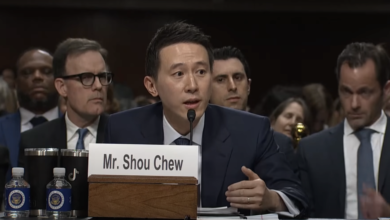The author is a member of March Forward!, an organization of veterans and service members who stand against war and racism.
 The Pentagon is sending 10,000s of troops into battle in order to avoid defeat in Afghanistan |
The Pentagon generals have warned that we should be braced for hundreds of U.S. casualties every month in this new phase of the war in Afghanistan.
We are told that we must risk life and limb—that tens of thousands of us must flood into Afghanistan, where U.S. casualties have skyrocketed year after year. The generals and politicians tell us we must die and be maimed to defeat an enemy, the Taliban, that threatens our “freedom” and our “way of life.”
And this is the main explanation and justification for why we must fight and die endlessly in Afghanistan: to drive the Taliban from any chance at political power, for their unacceptable Islamic extremism, anti-U.S. hatred, repression of women and friendship with al-Qaeda.
Why, then, at the same time we are being sent to kill and be killed in Afghanistan, are the politicians sitting down to dinner with the same people we are being sent to fight?
Are the Taliban and al-Qaeda the real reasons for the war on Afghanistan?
When President Obama announced the vast escalation of the war in Afghanistan, his speech made clear that the fate of the United States, and its allies around the world, rested with a U.S. victory in Afghanistan.
He invoked the 9/11 attacks and the fear of another al-Qaeda attack.
General Petraeus, General McChrystal and other Pentagon brass have openly admitted to the media that al-Qaeda is no longer operating in Afghanistan.
Although al-Qaeda claims to operate in approximately 100 different countries, the generals and politicians maintain that controlling Afghanistan is the key to preventing another al-Qaeda attack.
As former-President Bush explained in his announcement of the invasion of Afghanistan, it was not only al-Qaeda that needed to be defeated, but the Taliban government, which was supposedly equally responsible for the attacks. We were told by Bush, and now told the same story by Obama, that if the Taliban is not defeated they will allow al-Qaeda to return and launch more attacks against the United States.
The Taliban was once a friend of the U.S. government, emerging as an outgrowth of the brutal U.S.-funded and trained “Mujaheddin,” and continued to receive U.S. funding up until the 9/11 attacks. They had absolutely no role in the attacks, and in fact offered to extradite bin Laden to face trial. In their short history, the Taliban has never expressed any desire to attack the United States, and even today its leaders maintain that they have no interest in launching attacks against the United States—they are fighting to drive out what they rightfully see as a colonial-type occupation by foreign invaders.
We are expected to believe that it is just a coincidence that Afghanistan is an enormous economic prize for Wall Street and oil giants, and a significant geopolitical and military prize for the Pentagon. President Obama went so far as to state on national TV during his escalation speech that the United States is not an empire, not a colonizer.
But the U.S. relationship with the Taliban exposes the truth about U.S. foreign policy and military intervention: The war on “terrorism” is a war for colonial-style control of Afghanistan and Iraq and many other countries deemed important to a U.S.-dominated network of global domination. We live in the era of capitalism, which has as its natural extension the oppression of workers and whole peoples in the pursuit of profit and control of resources, markets and trade routes. Plain and simple: The United States is an imperialist country.
In 1996, when the Taliban was locked in a civil war with other factions vying for state power, U.S. officials began visiting the country. Among others, U.S. Assistant Secretary of State Robin Raphel met with Taliban leaders. Her meeting reveals the true nature of U.S. involvement in Afghanistan.
She stated to those she met with that “we are … concerned that economic opportunities here will be missed, if political stability cannot be restored.” At that time it was unclear which faction would succeed in the civil war, and while the United States was supporting the Taliban, they wanted to chum it up with all factions—it is not the nature of the government that concerns U.S. imperialism; only whether or not the victors will be welcoming of the proposed “economic opportunities.”
The “economic opportunities” that Raphel was sent to Afghanistan to work out was a proposed gas pipeline that the oil giant Unocal wanted to build, that would spell hundreds of billions of dollars in profits for Unocal, countless other businesses that would cash in, and their paid representatives in Washington and in the Pentagon.
Afghanistan itself is rich in natural resources, and is in a key location for hugely lucrative oil pipelines. But more valuable is its positioning in the region, giving U.S. imperialism a crucial foothold to exert dominance over Central Asia, shifting the balance of power in favor of U.S. interests.
Permanent military bases in Afghanistan would allow Washington to dominate the region, in particular the natural gas-rich former Soviet republics of Kazakhstan, Kyrgyzstan, Tajikistan, Turkmenistan and Uzbekistan. Afghanistan’s western border is the Caspian Sea coast directly across from Azerbaijan, also brimming with oil profits. Each of these countries has a wealth of natural resources to be plundered by U.S. capital.
When the Taliban won state power, it eventually became clear that the vast “economic opportunities” that U.S. officials fantasized about would not be realized. The 9/11 attacks provided a pretext to seize control of the country.
The Bush administration arrogantly thought that Afghanistan would fall easily and become a new bastion of U.S. interests. Military bases in Afghanistan would secure those “economic opportunities” within its borders, and give the United States a launching pad to gain access to the economic opportunities throughout the region. But the excitement about the new balance of power in Central Asia was premature, as mounting resistance in both Afghanistan and Iraq began to crush the dreams of the Wall Street CEOs and their functionaries in the White House and the Pentagon.
Year after year, the resistance grew, as more and more Afghans were compelled to fight the occupation in response to endless bombings, raids and dead civilians.
By last year, it was clear that the U.S./NATO force was being defeated at the hands of not only the Taliban, but over 140 different armed organizations that sprouted out of the horrific conditions of living under occupation. When General McChrystal issued his assessment of the war effort after he took command, it was exceedingly grim, and predicted a complete U.S. defeat if there was not a dramatic shift in the size and scope of the operation.
Pentagon’s frustration leads to escalation
The new phase of the war will more than triple the size of the occupation, and focuses on storming urban centers and occupying the cities, as we have just witnessed in Marja. The generals have admitted that this new phase will be extremely bloody, as droves of young men and women will return from Afghanistan dead, maimed or psychologically disabled.
But the official posturing in relation to the Taliban has shifted significantly. The first phases of the war were characterized by chest-thumping slogans of “smoking them out of their caves” and “no mercy” for those who “harbor terrorists.” The media pumped out stories of the Taliban’s brutality to justify thousands of civilian deaths at the hands of the U.S. occupation.
In this new phase, however, the tone has changed. General McChrystal said recently that “if [the Taliban] want to fight, then obviously that will have to be an outcome. But if they don’t want to fight, that’s fine, too, if they want to integrate into the government.” A far cry from “no mercy.” (New York Times, Feb. 4)
On Jan. 8, a U.N. official met with several senior Taliban officials to discuss a deal with the U.S./NATO occupiers that includes giving the Taliban a place in the Afghan government. In addition to that meeting, the New York Times reported that U.S. officials are taking the first steps to push those talks forward.
Afghan puppet-President Hamid Karzai has also publicly confirmed that, acting as a functionary of Washington, he will begin begging the Taliban to make a few concessions in exchange for awarding them political power.
Over 1,000 U.S. troops have now perished in Afghanistan, and tens of thousands have endured life-changing injuries—they all died because they were told that driving the Taliban from the government was crucial to the safety of the United States.
So why the change? How come after eight years of ruthless battle, after thousands of dead civilians, after more than 1,000 dead GIs—all under the justification that the Taliban was unacceptable and had to be driven from any sliver of political power or influence—why now do the generals and politicians want to award them seats in the Afghan government?
Even with the 30,000 additional troops, the United States will not be able to defeat the Taliban. That is the reason for the change. Washington and the Pentagon are faced with the reality that they cannot win militarily in Afghanistan.
Because the real aim in Afghanistan is to create an area friendly to U.S. business interests and to secure military bases for future imperialist wars, a deal with the Taliban is on the table. The only political position that the U.S. government cares about is whether or not U.S. capitalism is allowed access—so if the Taliban will take seats in the government in exchange for making some concessions to U.S. interests, then the U.S. politicians and the Taliban can become friends once again.
But getting the Taliban to agree to a deal is not possible now—the Taliban are clearly winning the war, so it has no need to make concessions.
As Afghan puppet-President Hamid Karzai put it, striking a power-sharing deal with the Taliban is the new goal, but cannot happen “without an atmosphere conducive to it.” (McClatchy News, Feb. 8)
That “conducive atmosphere” means getting the Taliban into a defensive military position, where they are more likely to be receptive to a deal. That is what is behind the troop surge and the new strategy in Afghanistan.
We need a new independent fighting movement
The new strategy in Afghanistan, both the massive troop surge and attempts to rekindle the friendship with the Taliban, is a move of desperation on the part of the United States. It is the admission that the United States is losing the war, with fading hopes of regaining control.
The quagmire in Afghanistan, coupled with the devastating and deepening economic crisis here at home, puts the U.S. ruling class in an increasingly fragile position. It is now, when the ruling class is in crisis, that a fighting mass movement of the people must emerge in order to take advantage of Washington’s plummeting credibility.
The current situation puts the people in a possibly much more advantageous position to force the war to end and win jobs, health care and more. Now is the time to capitalize on the mounting resistance to U.S. imperialism abroad and growing frustration with the capitalist system here at home.






